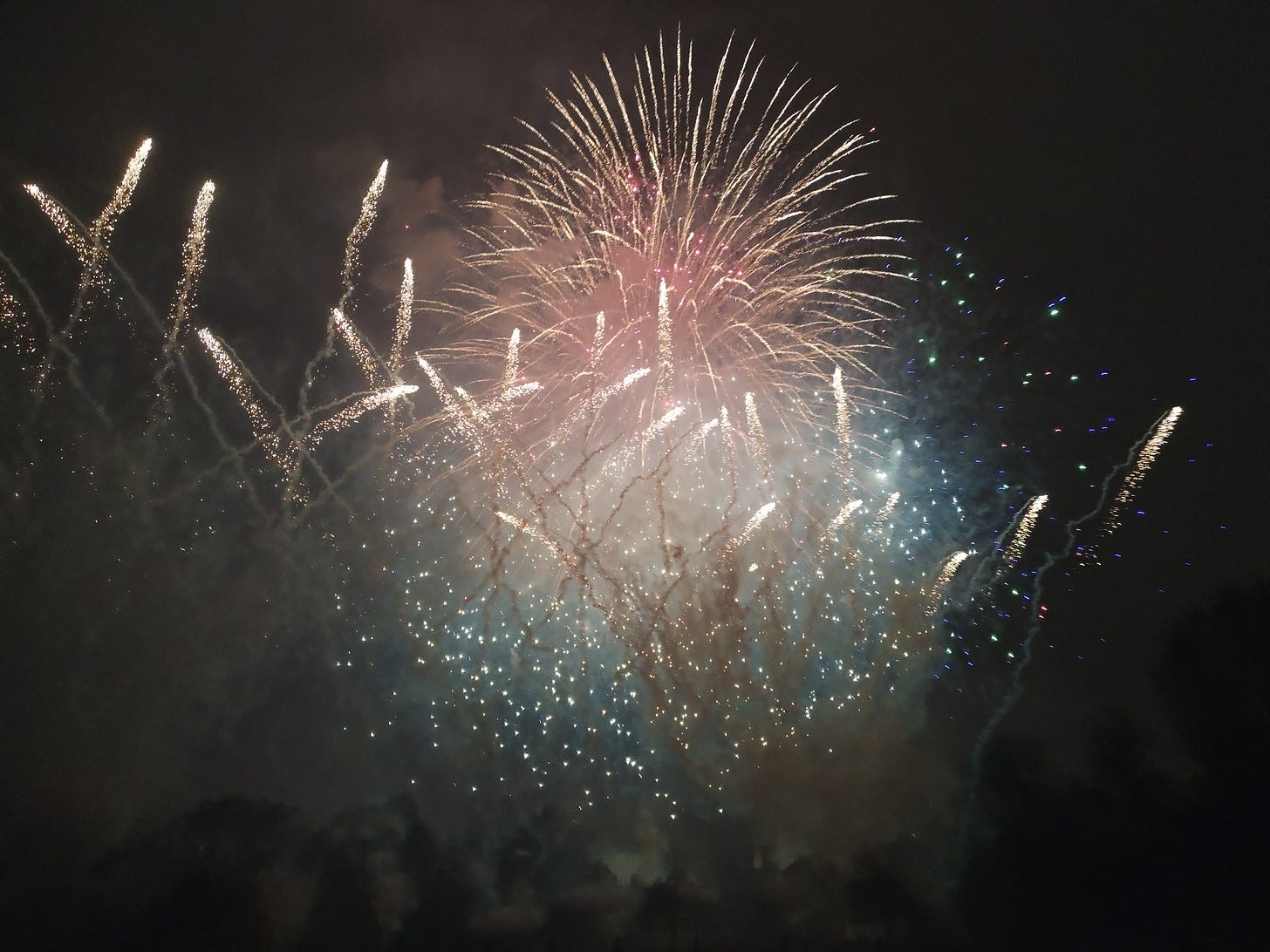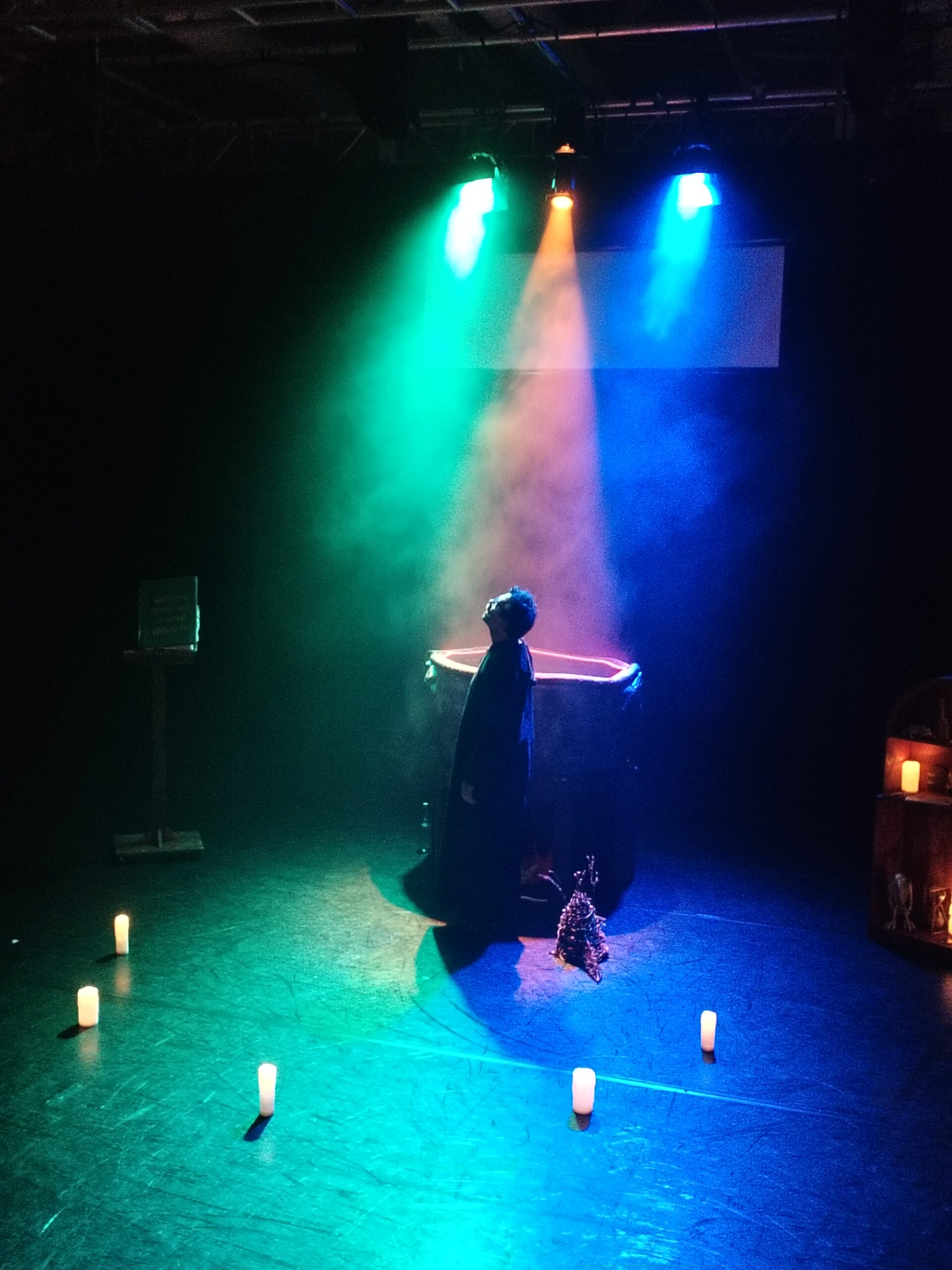Tape 161: From Theatre To Comedy, And Back Again
The reason I ended up doing comedy is because I once did theatre. When I was a kid, I joined a youth theatre called Stage ‘65 in Salisbury and learned to love performing, and making stuff. I played “Nasty Man At The Fair” in The Elephant Man, a role which required me to berate and terrify a group of circus freaks with microcephaly – “Today, my pinheaded darlings, is the birthday of our beloved leader, Emperor Leopold!”, I snarled, for some reason giving this guy a Cockney accent despite the fact that he was clearly supposed to be Belgian. I played “The Frog Footman” in Alice’s Adventures In Wonderland, which mostly involved me waddling around in flippers and saying things like “Well, if you go this way, then really that’s just another way of going that way. But if you go that way, then in a way, aren’t you just, in a round-about way, going this way? And on and on ‘til teatime?” (I can’t remember if this was actual dialogue from the play, it’s just the kind of thing I associate with that book). Eventually I worked my way up to playing George Gibbs in Our Town, which was a lead role so should have felt like a momentous achievement, but was actually quite embarrassing because I had to kiss a girl at one point and had never kissed a girl before and had to deal with the rest of the cast laughing when the director said “Come on, Joz, be brave.”
Anyway, in the end I left theatre behind. When I turned 18 I wrote a play which I thought was a bleak, radical Beckettian masterpiece in which I played an eccentric old professor who spent all week writing and eating jam direct from the jar because his work left him unable to do anything else, then on Fridays he ate his own godson, then he would burn all his writing and do it all again next week. (In hindsight, this was obviously about workaholicism and the inability to find self-worth in anything outside of the concept of productivity, which is clearly something I was already struggling with even as a teenage boy, when I really should have been out on my moped smoking doobies and playing Knock Down Ginger).
I thought this play would be incredibly profound, and certainly presented it with the seriousness of a teenager who thinks he’s done something profound, but looking back, it was clearly ridiculous. At uni I performed comedy for the first time, and loved it. I thought to myself “What if I held onto all those values I learned from theatre, but applied them to a world where I could just allow myself to be stupid all the time, without feeling the need to pressure myself to be serious, and then embarrass myself by misunderstanding what seriousness is?”
I would dabble in theatre in the years since then – I did the odd play at the Edinburgh Fringe, but I could never really shake the feeling that theatre was something I used to do, rather than something I was actively doing now. I even started to build up a bit of a resistance to theatre, to its constraints. I went to see a play of my brother’s which was set entirely in the car park of a village hall, and was driven half-mad by the fact that the characters never entered the village hall. They just stood around in the car park for two hours talking about their lives. As soon as they were about to enter the hall, a new character would enter the stage and they would go “Oh look, here’s Pam,” and then they would stand in the car park for a bit longer and talk to Pam.
“Just enter the village hall!” I shouted from my seat. “You’ve booked it, haven’t you? If this was real life, you’d just enter the hall!” People around me shushed me, saying I was ruining the show. I folded my arms and sunk into my seat, grumbling. If this had been a comedy show, my witty interjection would have gotten a big laugh. I tried to get my brother to explain it to me later.
“In real life, they’d just go into the hall, wouldn’t they?” I said. “Why do they all stand round in the car park? It’s not very realistic.”
“It’s not very realistic when you put a toilet seat on your head and pretend you’re walking an invisible dog,” he countered.
“Yeah but I’m not pretending to be a woman called Pam standing in the car park of a village hall, am I? I’m just claiming to be a man called Joz standing onstage with a toilet seat on his head who’s walking an invisible dog. I’m being completely honest.”
“But you’re not walking an invisible dog,” he said.
“You don’t know that,” I replied.
“The thing you need to understand about drama is that, according to the Aristotelian unities of time, space and action,” he began, but he had lost me instantly and I was now laughing away to myself remembering my invisible dog routine. God, that was a great routine.
The point is, I didn’t work properly in theatre for a long time, though the shows I ended up making existed in a weird liminal space between theatre and comedy. My imagination had very much been shaped and moulded by the years I’d spent working in that world. Then last year the comedian Edy Hurst got in touch and asked me if I would direct his new show. I was relatively new to directing, but keen to learn more about it and keep doing it, and I really enjoyed Edy’s previous show, so I said yes. Edy’s new show had been commissioned by the Lowry in Salford, which is an amazing theatre, and was scheduled to launch there officially on Hallowe’en in 2024. I was really excited – I’d spent the last ten years taking the seeds of ideas that had been planted by making theatre and letting them grow in the ground of comedy, and now I had the opportunity to repay the favour and take the seed of something planted in the comedy world and help to bring it into a theatre. I had no idea quite how it would go, but I was excited about revisiting that world and seeing how my brain took to it now.
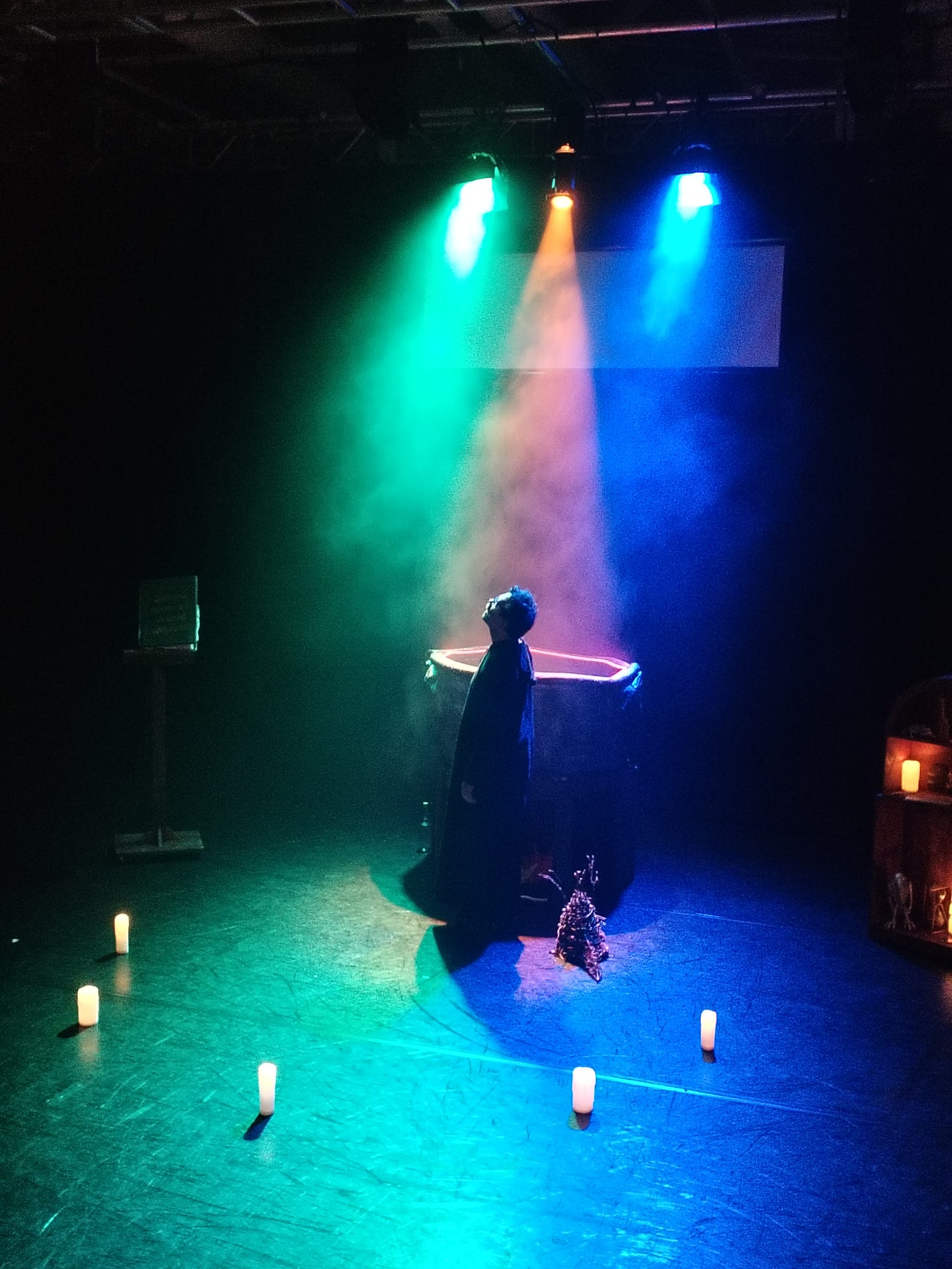
Throughout the development of the show, Edy and I kept walking the tightrope between those two worlds, trying to navigate them properly. Edy’s sensibilities as a performer had been honed by the comedy scene, but the show itself had a very theatrical shape and arc to it. I’ve always seen my job as a comedy director to be a process of helping the comedian to uncover what it is they want their show to be, and then to empower them and steer them towards the best way to do that. You’re not the person calling the shots, but you act as a kind of a mirror to the performer, helping them to see what it is they’re doing and close their hand around what they actually want. So I kept working hard to empower Edy to find the centre of the show he wanted to make, while also actively thinking about what we could do in the staging and telling of this story to make it look and feel exciting and dramatically satisfying in a theatrical space.
Then we spent most of October working with an amazing team to bring that vision to life, and finally launch the show to the world on Hallowe’en, and I was so excited by the process and the results. Firstly, the sincere bit – I’m so proud of what we as a whole team achieved, and in particular I was really proud of feedback from the team saying that Edy and I had managed to make the development process into a really creatively open and welcoming space. In contrast to comedy directing, the director in theatre does call the shots, and I’m told that theatre development can often be much more structured and hierarchical. I had no interest in running the show in that way, because that team contained people with areas of expertise far more specific than mine, and I wanted to hear from all of them. I wanted everyone to feel like they could volunteer their ideas and they would be welcomed.
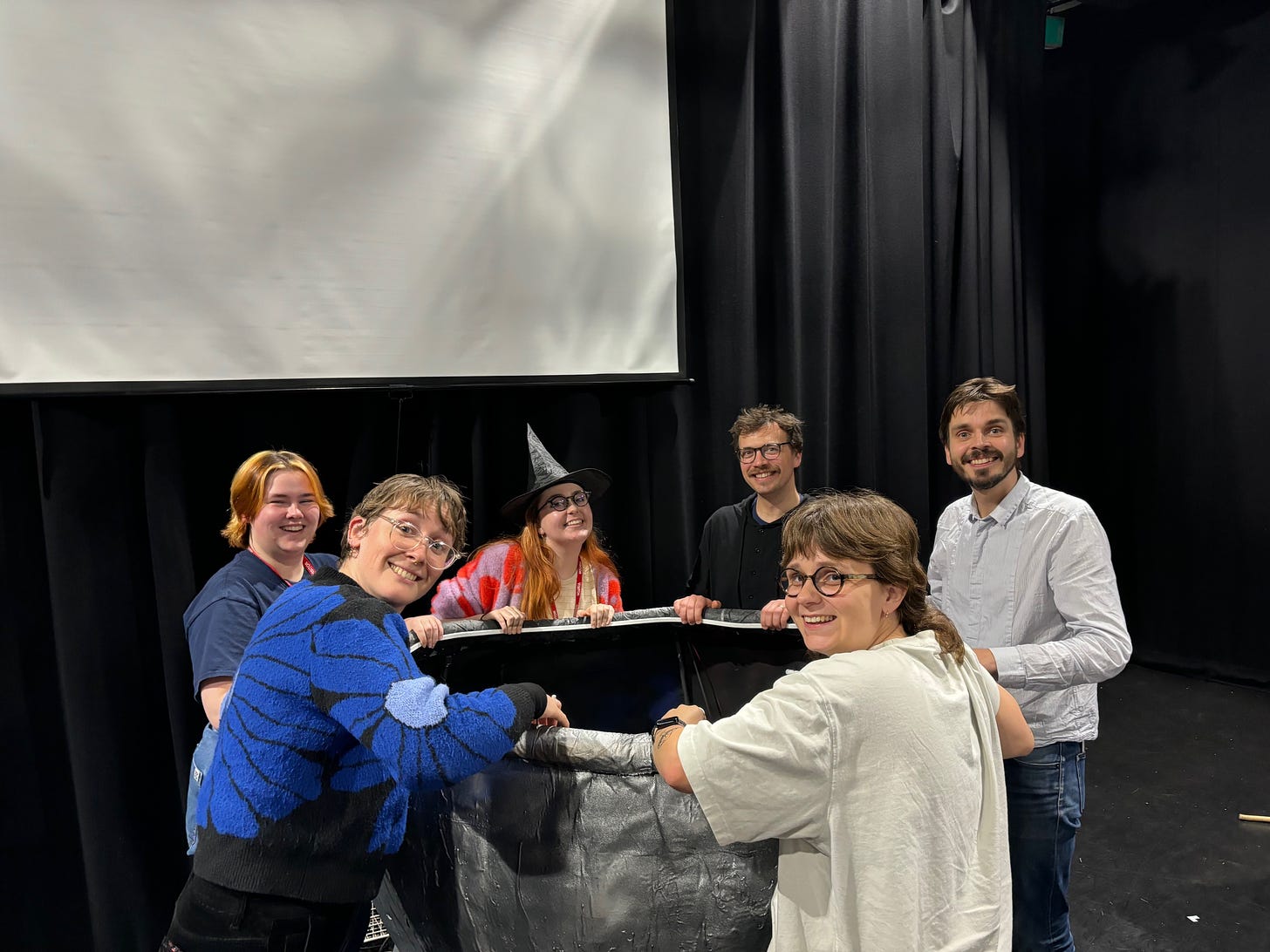
Dream team/scream team.
When we made Blink we developed a method of collaborative making that Ben Target described as being like rolling a ball around the room, letting everyone pick it up and volunteer their thoughts and ideas, and letting that roll freely until eventually whoever was “leading” would gather it back up and decide what had emerged from that process that showed us a clear way forward. I saw my role as being a filter rather than anything else – I heard and saw everyone else’s ideas, and then tried to sift them down into concrete decisions. And of course, because Edy’s show was at its heart a comedy show, it still very much needed to be the performer who was at the centre of it all, so that this entire process had to come back to empowering and enabling Edy’s central vision. I think we all managed that really well, and I was so proud to find a way of working that let everyone – those with a comedy background, those with a theatre background, those like me who hover in-between – feel encouraged and supported. And the results were really brilliant – the reviews have been great!
But, of course, with every creatively rewarding and fulfilling process, there must also be important lessons for the future, so here are my big three from the last few weeks:
- If You’re The Director Of A Theatre Show, You Don’t Have To Run Everywhere – Picture the scene. It’s five minutes before the show. The audience are coming in. You hear word from the front-of-house staff that they’re not sure where the stickers are that they’re supposed to hand out at the end. What do you do? You run and look for the stickers, right? You do your best to help out? Wrong. This results in the creative team later doing a mean impression of you and running around the stage and jumping up and down going “Oh no, oh no, where are the stickers, I’m the director, oh no!” Apparently this is the stage manager’s job, and your job as director really ought to be to maintain your dignity immediately before the show. In my defence, I did not jump up and down, although I notice that this breakdown in respect and discipline occurred after Edy’s daughter cast a magic spell on me that caused me to catch on fire, and then refuse to grant me permission to put myself out. In response to this, I did jump up and down quite a bit, so I blame her for undermining me so insidiously and giving the team permission to ridicule me.
- If You’re Giving A Touch Tour, You’re Not Supposed To Say “Do You Want Me To Read This Or Not?” – Picture the scene. The show’s creative access director has given you a set of brilliant notes to help you give a touch tour for visually impaired audiences before the show begins. One person books on the tour, and it’s the mum of the show’s creative captioner. She doesn’t have any visual impairments, but she’s never been on a touch tour and wants to find out what they’re like. When you read the line “Centre stage is a large black cauldron,” she heckles by shouting “That’s not black, it’s silver.” She continues to heckle throughout, contesting your use of the word “cabinet” to describe what she claims is a shelving unit. You explain to her that she really shouldn’t be heckling, because if there were any visually impaired audience members there, they might become confused as to what’s actually being described. “You shouldn’t be telling them the silver cauldron is black, or that the shelving unit is a cabinet, then,” she replied. “You shouldn’t be lying to the blind.” “I’m just reading what I’ve been told to say!” you gibber. “Do you want me to read it or not?” Apparently, touch tours really shouldn’t see this dramatic a breakdown in communication, so that’s useful for me to learn for next time.
- In Theatre, It’s Important To Pay Attention To The Tone Of Your Voice – I noticed a few days in that a few members of the team kept saying things like “Is he doing it on purpose?” after I’d chatted to them, and other members of the team saying things like “You’ve not worked with him before, right? He is just like that.” When you interrogate this further, you learn that in the context of a theatre space, your tone of voice makes you sound like you are constantly taking the piss out of everything. You’ll explain to the team that this problem has dogged you all your life, and that you have tried your best to moderate it, but that this honestly is just how you speak. You’ll do an impression of how you used to talk before you became aware of this issue and tried to work on it, and then someone else working on the show who you’ve only met remotely online in the past will turn around and go “That sounds more like what I think you sound like.” You’ll ask him to explain, and he’ll say “Obviously I’ve only chatted to you online and seen your films and stuff, but yeah, that sounded like the voice I associate with you. I’ve heard you sound like that more than I’ve heard you sound like this other voice you’ve been doing.” But that’s my voice, you’ll reply. This, what I’m doing now, this is my voice. “Nah, that’s not your voice.” They’ll say. “You sound much weirder than that.”
So, like all projects, there are big achievements to be proud of and hold onto, and valuable lessons to improve upon for next time. I’m grateful for all of it, and hugely proud of Edy for all his amazing work, and hugely grateful to such a talented and fun and brilliant team. When I was a teenager acting in am-dram shows, I always hoped I might end up writing and performing for a living, but didn’t really know what the context would be – would it be in theatres, would it be somewhere else? But I never, ever imagined that I might end up actually directing a show that played at one of the country’s best theatres. I think the younger me would’ve been proud to see it, though.
A Cool New Thing In Comedy – I think I forgot to mention that Eggbox, mine and Miranda’s night of short films and live script readings, is coming back for another outing at the Pleasance Main House in January! We’re confirming the programme over the next few weeks, and it already has some big treats in store. The first two Eggbox shows sold out, so do book ahead if you want to be part of number 3!
What’s Made Me Laugh The Most – Sam O’Leary seeing me eat injera bread and thinking I was eating a box of tripe. Easy mistake to make, actually.
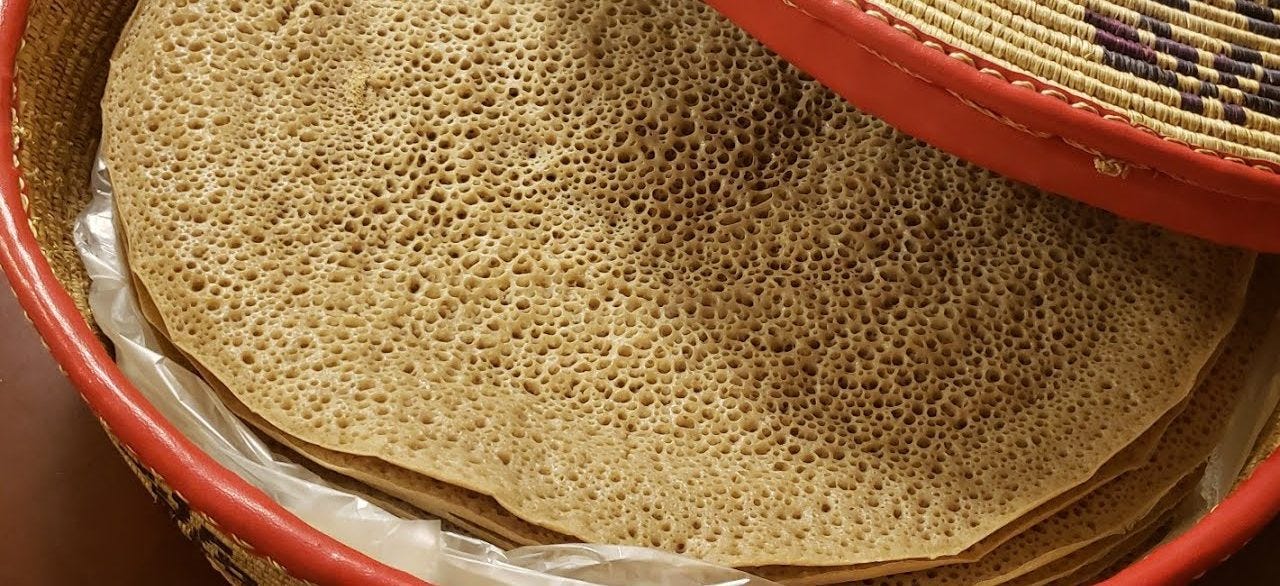

Book Of The Week – Circling The Sun by Paula McLain, a novel about a woman who tries to set a new world record for crossing the Atlantic in an aircraft in 1936. I thought it was about Amelia Earhart, but it’s actually entirely fictional, but I get the feeling she’s going to be fairly Earhart-adjacent. Maybe Amelia Earhart will show up for a cameo at some point, like Forrest Gump! That’d be cool.
Album Of The Week – Songs Of A Lost World by the Cure. I’ve previously had limited time for the Cure. Disintegration is a masterpiece, but pretty much nothing else they’ve made sounds remotely like it. They’ve spent 35 years stubbornly refusing to even try making anything similar to what is largely acknowledged as their best album – until now! This new one isn’t as good, obviously, but it’s the only album of theirs I’ve heard that sits in a similar world, and I really like it. Also, the guitarist from Tin Machine is now in the Cure!!! So happy he’s landed on his feet, I’ve always thought Tin Machine get a bad rap.
Film Of The Week – Made up for a few weeks of being too busy to go to the cinema by packing a couple of films in this week. Tim Mielants’ Small Things Like These is a quietly devastating film about the Magdalene Laundries, and Sean Baker’s Anora is a straight-up masterpiece – it starts as a fairly standard dysfunctional romance in the Pretty Woman mould, then utterly transforms into one of the funniest and most intensely chaotic films of the year. I’ve not laughed out loud in a cinema like this for ages.
That’s all for this week! As ever, let me know what you thought, and if you enjoyed the newsletter enough to send it to a friend or encourage others to subscribe, I’d hugely appreciate it!
Also, a reminder that we’re still crowdfunding for my sitcom pilot The Happiness Chain, starring Roisin O’Mahony, Huge Davies, Rosalie Minnitt, Phil Ellis and Donna Preston! We’ve got 3 weeks to go and could still do with all the support we can get, so if you feel like donating, or sending the project to friends who you think might like to support, we’d be ever so grateful!
Thanks so much for reading, and take care of yourselves until next time,
Joz xx
PS Here is a photo of the Battersea Park Fireworks Display. Not pictured – the Octonauts Live Show, the real highlight of the event:
